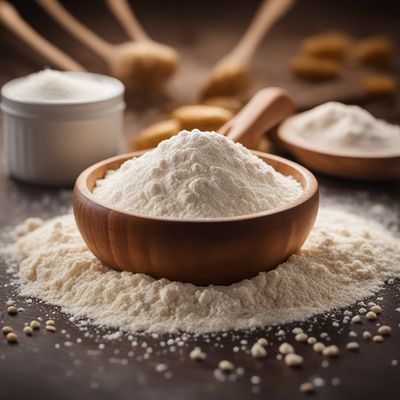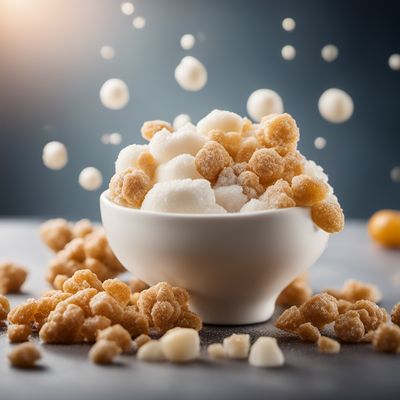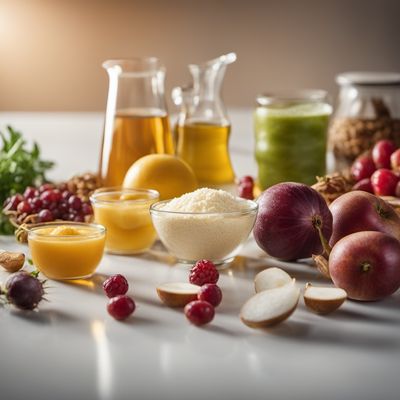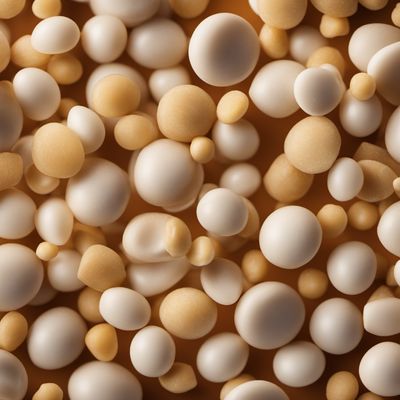
Ingredient
Firming agent
The Secret Ingredient for Perfect Texture
Firming agents are substances that enhance the texture and stability of food products. They work by strengthening the bonds between molecules, resulting in a firmer and more cohesive structure. These agents can be natural or synthetic, and they come in various forms such as powders, gels, or liquids. When used in cooking or baking, firming agents contribute to the overall mouthfeel and appearance of the final product, ensuring a pleasing texture that holds up well during preparation, storage, and serving.
Origins and history
The use of firming agents in cooking can be traced back to ancient times when natural ingredients like gelatin, agar-agar, and pectin were employed to firm up foods. Over the years, advancements in food science and technology have led to the development of synthetic firming agents like calcium chloride and calcium lactate. These agents have revolutionized the culinary world, allowing chefs and home cooks to achieve consistent and reliable results in their recipes.
Nutritional information
Firming agents are primarily used for their textural properties and do not provide significant nutritional value on their own.
Allergens
Firming agents are generally not known to cause allergies, but individuals with specific sensitivities or allergies to certain ingredients used in synthetic firming agents should exercise caution.
How to select
When selecting a firming agent, consider the specific application and desired outcome. Different firming agents have varying strengths and properties, so it's important to choose one that suits the recipe. Read product labels carefully to ensure the firming agent is suitable for your dietary needs and preferences.
Storage recommendations
Store firming agents in a cool, dry place away from moisture and direct sunlight. Follow the manufacturer's instructions for specific storage recommendations, as some firming agents may require refrigeration or airtight containers.
How to produce
Firming agents are typically produced through industrial processes and are not easily produced at home.
Preparation tips
When using firming agents, it's crucial to follow the recommended dosage provided by the recipe or product instructions. Adding too much firming agent can result in an overly firm or rubbery texture, while using too little may not achieve the desired effect. Experimentation and practice are key to mastering the use of firming agents in different recipes.
Culinary uses
Firming agents are widely used in various culinary applications, including the production of cheese, yogurt, jams, jellies, and desserts like custards and mousses. They are also commonly used in the preparation of pickles, canned fruits, and vegetables to maintain their texture and prevent spoilage.
Availability
Firming agents are readily available in grocery stores, specialty food stores, and online retailers that offer baking and cooking supplies.
More ingredients from this category » Browse all

Emulsifier
The Harmony Enhancer

Flour treatment agent
The Secret Ingredient for Perfect Baked Goods

Flavour enhancer
The Magic of Umami

Thickener
The Art of Creating Perfectly Thickened Delights

Anti-foaming agent
The Silent Hero: Taming the Bubbles in Your Culinary Creations

Antioxidant
"Nature's Defense: Unleashing the Power of Antioxidants"

Humectant
The Moisture Magician: Unveiling the Power of Humectants

Anti-caking agent
The Secret Ingredient: Unveiling the Magic of Anti-Caking Agents

Acidity regulator
The Balancing Act: Understanding Acidity Regulators

Binding agent
The Glue of Culinary Creations: Unveiling the Power of Binding Agents

Stabiliser
The Secret Ingredient for Perfect Texture

Preservative
Preserving the Goodness: Unveiling the World of Food Preservatives